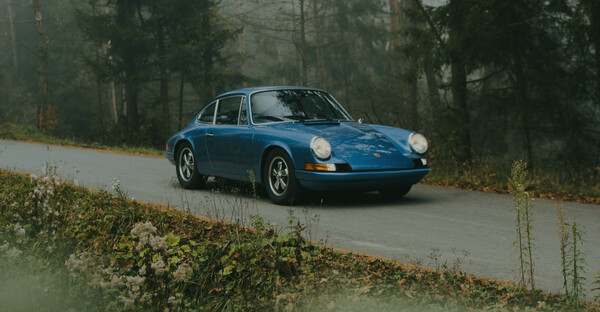Description
YHR473E
With original delivery to the USA in Decemeber 1966, this Pagoda's original bodyshell has been very well preserved and is beautifully finished in striking Signal Red with contrasting Black hard and soft tops.
With its free-revving 2, 300cc five main bearing engine producing excellent torque, this is a true driver's car. With a precise gear shift and non-power assisted steering, it's very responsive, offering a much sharper driving experience than the more leisurely automatic 280SL. A delight to drive, and has an imposing presence on the road.
The four-speed manual transmission is a delight to use and would be well suited to taking on European rallies, and the soft clutch makes for an equally appealing classic for town driving.
MODEL HISTORY & PRODUCTION
The 230SL (W113) was launched at the Geneva Motor Show in 1963 as a replacement for its predecessors, the 190SL and 300SL. The 230SL was updated in November 1966 to the 250SL and in November 1967 to the last production series as a 280SL.
With its inwardly facing roof curvature and many analogies with Far Eastern Temples, these models soon became better known as the 'Pagoda'. They were however relatively easy to get in and out of due the tall nature of the roof. The W113's clean, elegant straight lines typify the work of its lead designer - the legendary Paul Bracq. It had virtually nothing in common with its predecessors, with only the chassis based on that of the 220SE (W111) saloon modified to offer a sportier feel. It was available as a convertible with a hard top and soft folding roof.
The bonnet was styled with a slight bulge to accommodate the straight six cylinder engine, again developed from that in the saloon. Developing 148 hp for the 230SL and 168 hp for the 280SL with mechanical multi-port fuel injection it produced a very smooth power delivery. It was offered with standard four-speed manual, or an optional extra four-speed automatic transmission too, and later with the ZF five-speed manual transmission.
With recirculating ball steering, a dual-circuit brake system, gas-filled shock absorbers and radial ply tyres, it offered a sporty feeling with exceptional handling due to its taut chassis, but also a very compliant ride too. The Pagoda was the first ever sports car to come with a 'safety body'. It had a rigid passenger cell and designated crumple zones with impact-absorbing front and rear sections built into the vehicle structure.
The Pagoda proved to be a sound foundation for all subsequent SL's: An exceptional blend of good performance with the highest levels of comfort, with some 48, 912 built between 1963 and 1971.















